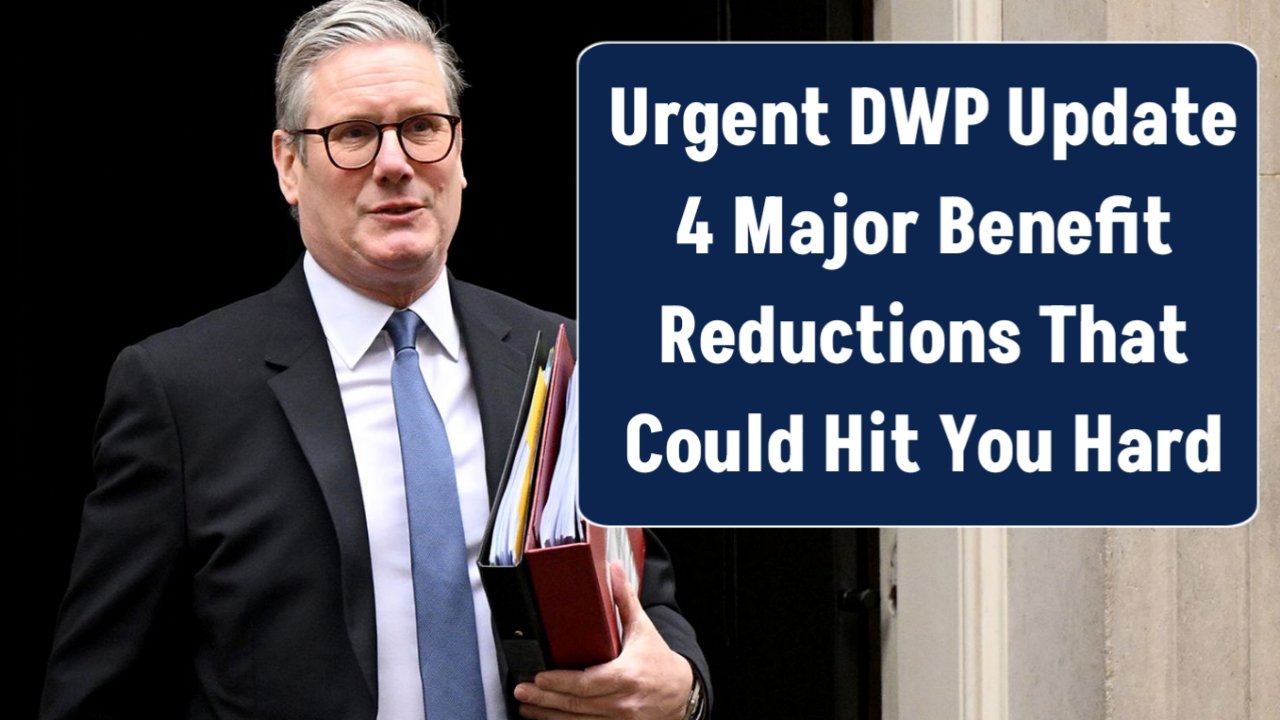Millions of people across the UK rely on benefits to help cover their essential costs. But with the latest update from the Department for Work and Pensions (DWP), many claimants could soon face significant changes. Starting as early as 2025, the government is proposing new rules that may lead to the reduction or even removal of certain benefits. These cuts could deeply affect the most vulnerable households, including pensioners, Universal Credit claimants, and people with disabilities.
In this article, we explain the four key areas where benefits could be reduced, who might be impacted, and what you can do to protect your payments. If you rely on any DWP support, this update is critical for you.
Free TV Licence at 57 Leaves UK Pensioners Amazed – What the New Scheme Means for You
Universal Credit Sanctions to Get Stricter
One of the most significant upcoming changes involves Universal Credit sanctions. The DWP plans to tighten the rules for jobseekers who fail to meet their commitments under the Claimant Commitment. This could include missing job interviews, failing to apply for a set number of jobs, or refusing training opportunities.
If these changes are implemented, sanctions could become more severe and last longer, leading to a noticeable drop in monthly payments. Many people already struggling with the cost of living may find themselves with even less support if they miss a requirement.
The government says the goal is to encourage work and reduce dependency, but critics argue that it could push already vulnerable people further into hardship.
Housing Benefit Support May Be Cut
The DWP is also reviewing the Local Housing Allowance (LHA) rates. These rates determine how much financial help low-income renters can get toward their housing costs. Recent reports suggest that the government might freeze or reduce LHA rates in some areas, even as rents continue to rise.
If the rates are lowered or not increased to match inflation, many families and individuals could find it harder to afford their homes. In high-rent areas, even a small reduction in support could result in eviction or homelessness.
If you depend on Housing Benefit or receive Universal Credit with a housing element, it’s essential to monitor announcements about the LHA review and check your eligibility regularly.
Changes in PIP Eligibility Criteria
Personal Independence Payment (PIP) provides financial support to individuals with long-term disabilities or health conditions. However, DWP is reportedly considering changes to how eligibility is assessed, with a potential shift toward a “tighter” framework.
New proposals may include more regular reviews, additional medical evidence requirements, or even a move to a points-based digital system. These measures could disqualify some claimants or reduce the rate of their payments.
This change would primarily affect those with mental health conditions or fluctuating illnesses, who may find it more difficult to meet the stricter criteria even though their conditions remain serious.
If you currently receive PIP or are planning to apply, staying updated on policy announcements is crucial to understanding how your case may be reassessed in the future.
State Pension Credits Could Be Affected
While not officially confirmed, analysts have warned that future reforms could impact the Pension Credit system. Pension Credit helps low-income pensioners boost their weekly income and access additional support like free TV licences, cold weather payments, and more.
There are concerns that income thresholds or qualifying criteria might change, making it harder for new applicants to get support. Some experts also fear that automatic enrolment could be scrapped, requiring pensioners to reapply or provide more evidence.
If you’re approaching retirement or already claiming Pension Credit, it’s a good idea to keep your documents up-to-date and monitor any communication from the DWP to avoid missing out on potential benefits.
Why These Changes Matter
These updates come at a time when UK households are already facing rising energy bills, food prices, and rent. Any reduction in benefit payments, even small ones, could have a significant impact on the daily lives of millions.
The government argues that these changes are meant to improve the efficiency of the welfare system, reduce fraud, and encourage employment. However, critics worry that they may penalise people who are already struggling, especially those with disabilities, single parents, and elderly citizens living on fixed incomes.
Understanding these changes is not just important—it’s essential. If you’re affected by any of the benefits mentioned above, you should stay informed, prepare for possible adjustments, and reach out to support services when needed.
What You Can Do Now
If you’re concerned about losing benefits or facing cuts, there are a few proactive steps you can take. First, make sure all your benefit applications are up-to-date and that you respond promptly to any DWP requests.
Second, consider seeking advice from Citizens Advice or a local welfare rights organisation. They can help you understand your rights, review your benefits, and guide you through any appeals or reviews.
Third, keep an eye on your Universal Credit journal and letters from the DWP. Any changes to your benefits will usually be communicated in writing, and it’s your responsibility to read and respond quickly.
Finally, consider checking if you’re eligible for additional support like food banks, energy bill relief, or council tax reductions. Even if one benefit is cut, other help may still be available.
Final Thoughts
The DWP’s latest benefit reforms could have a major impact on millions of people across the UK. From stricter sanctions on Universal Credit to reduced support for housing and disability benefits, the risks are real.
Being aware of these changes, understanding how they affect you, and taking early action can help protect your finances. Whether you’re retired, unemployed, or living with a disability, now is the time to stay informed and be ready.

